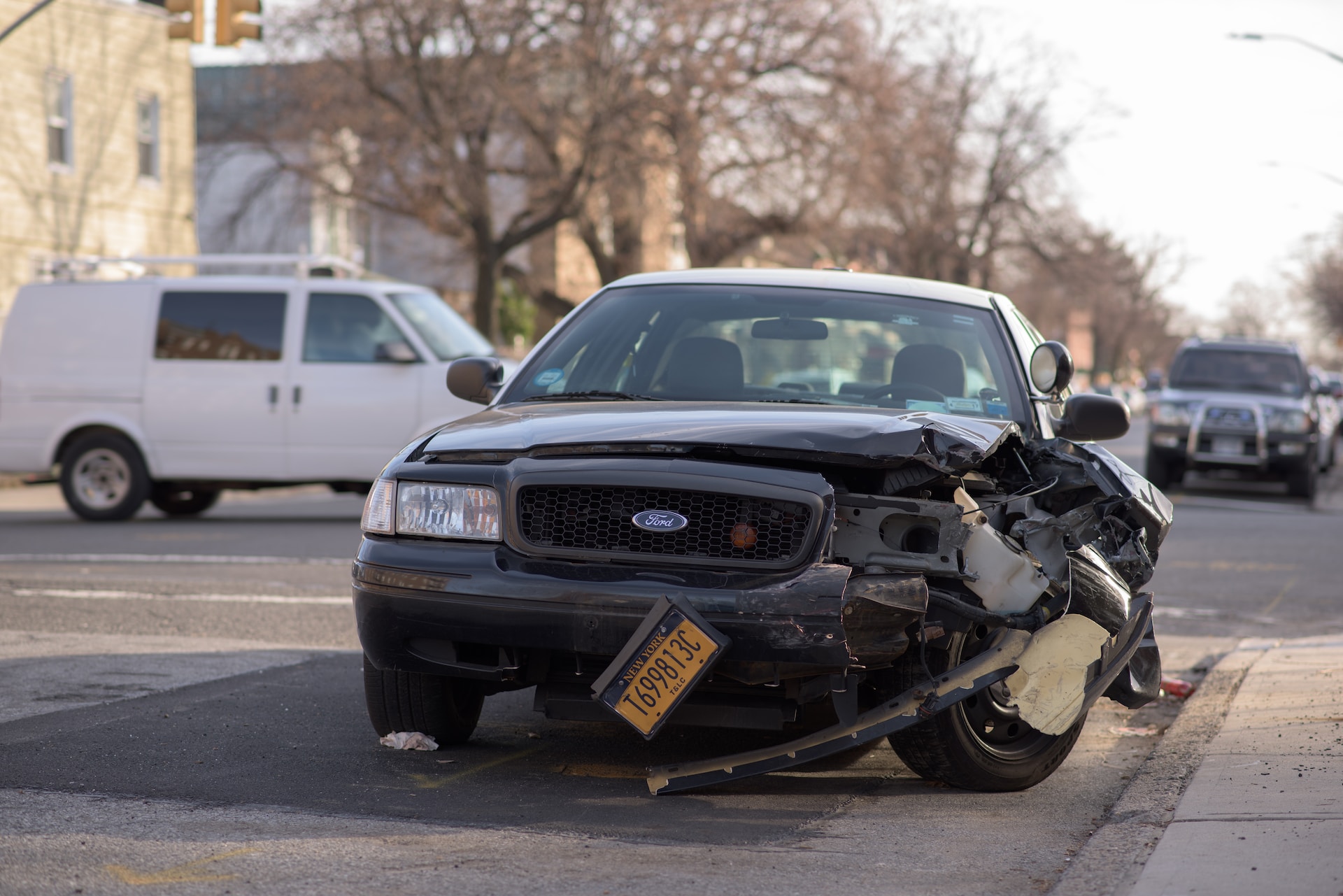State Farm is one of the largest and most popular insurance companies in the United States, with over 80 million policies in force. But when it comes to settling claims, State Farm is not always on your side. In fact, State Farm has a reputation for being one of the most difficult insurers to deal with after a car accident.
According to a 2010 report by the American Association for Justice, State Farm ranked as the fourth worst insurance company in America for denying and delaying claims, lowballing settlements, and fighting policyholders in court. The report also revealed that State Farm has a “three Ds” strategy: deny, delay, and defend. This means that State Farm will try to deny your claim, delay the settlement process, and defend itself in court if you sue them.
So how long does it take State Farm to settle claims? The answer is: it depends. There is no fixed timeline for settling a claim with State Farm or any other insurance company. The settlement process can vary depending on several factors, such as:
- The severity of your injuries and damages
- The clarity of fault and liability
- The availability and quality of evidence
- The cooperation and communication of the parties involved
- The state laws and regulations that apply to your case
- The skill and experience of your lawyer
In general, the more complex and disputed your case is, the longer it will take to settle. However, there are some steps you can take to speed up the process and increase your chances of getting a fair and fast settlement with State Farm. In this article, we’ll guide you through these steps and share some tips and tricks from our experts.
What to do after a car accident involving State Farm
The first thing you need to do after a car accident involving State Farm is to make sure that you and anyone else involved are safe and receive medical attention if needed. Then, you should follow these steps:
- Call the police and report the accident. Ask for a copy of the police report, which will contain important information about the accident scene, the parties involved, the witnesses, and the possible causes of the accident.
- Exchange information with the other driver(s), such as name, address, phone number, license plate number, driver’s license number, insurance company name and policy number. Do not admit fault or apologize for anything at this point.
- Take photos and videos of the accident scene, your vehicle, your injuries, and any other relevant evidence. You can also collect contact information from any witnesses who saw what happened.
- Seek medical attention as soon as possible, even if you feel fine or have minor injuries. Some injuries may not show up right away or may worsen over time. Getting medical treatment will also help document your injuries and link them to the accident.
- Contact your own insurance company and notify them of the accident. Do not give any recorded statements or sign any documents without consulting your lawyer first.
- Contact an experienced car accident lawyer who can help you protect your rights and pursue your claim against State Farm.
How to file a claim with State Farm
After you’ve taken care of yourself and gathered evidence from the accident scene, you can file a claim with State Farm. You can do this online, by phone, or through their mobile app. You will need to provide some basic information about yourself, your vehicle, your insurance policy, the other driver(s), and the accident details.
When you file a claim
How State Farm evaluates your claim
Once you file a claim with State Farm, they will assign a claims adjuster to your case. The claims adjuster is the person who will investigate your claim, evaluate your damages, and make you an offer to settle your case.
The claims adjuster will contact you and ask you for more information about the accident, your injuries, and your expenses. They may also request documents such as medical records, bills, receipts, proof of income, and repair estimates. They may also ask you to give a recorded statement or sign a medical authorization form.
You should be careful when talking to the claims adjuster, as they are not on your side. Their goal is to save money for State Farm by minimizing your claim or denying it altogether. They may use various tactics to achieve this goal, such as:
- Asking you leading or confusing questions that may make you admit fault or downplay your injuries
- Offering you a lowball settlement that does not cover all your damages
- Delaying the settlement process by asking for unnecessary or irrelevant information
- Disputing the extent or cause of your injuries or damages
- Using your social media posts or activities against you
- Threatening to take your case to court if you don’t accept their offer
To avoid falling for these tricks, you should always consult your lawyer before talking to the claims adjuster or signing any documents. Your lawyer can help you prepare for the conversation, review the documents, and advise you on whether to accept or reject the offer.
How to negotiate a settlement with State Farm
If you receive an offer from State Farm that is lower than what you deserve, you don’t have to accept it. You can negotiate a better settlement with State Farm by following these steps:
- Review the offer and compare it with your damages. Make sure that the offer covers all your current and future medical expenses, lost wages, property damage, pain and suffering, and other losses.
- Write a demand letter to State Farm. A demand letter is a formal document that outlines your claim, your damages, and your desired settlement amount. You should include evidence to support your claim, such as medical records, bills, receipts, photos, videos, witness statements, and police reports. You should also explain why State Farm’s offer is inadequate and unfair.
- Send the demand letter to State Farm and wait for their response. State Farm may accept your demand, reject it, or make a counteroffer. If they accept your demand, you can proceed to finalize the settlement agreement. If they reject it or make a counteroffer, you can continue negotiating until you reach a mutually agreeable amount.
- Be persistent and patient. Negotiating a settlement with State Farm can take time and effort. You may have to go back and forth with them several times before reaching a satisfactory outcome. Don’t give up or settle for less than what you deserve. Keep in mind that State Farm wants to avoid going to court as much as you do, so they have an incentive to settle your case out of court.
- Hire a lawyer if you need help. Negotiating a settlement with State Farm can be challenging and stressful, especially if you are dealing with serious injuries and financial difficulties. A lawyer can take over the negotiation process for you and handle all the communication with State Farm. A lawyer can also leverage their knowledge and experience to get you the best possible settlement.
What to do if State Farm denies or lowballs your claim
Sometimes, State Farm may deny or lowball your claim despite your best efforts to negotiate a fair settlement. This can happen for various reasons, such as:
- State Farm believes that you are partially or fully at fault for the accident
- State Farm disputes the severity or cause of your injuries or damages
- State Farm has insufficient evidence to support your claim
- State Farm has a policy limit that is lower than your damages
If this happens, you have two options: appeal or sue.
Appealing means that you ask State Farm to reconsider their decision and provide them with more information or evidence to support your claim. You can do this by writing a letter of appeal to State Farm’s supervisor or manager. You should explain why you disagree with their decision and what additional information or evidence you have to prove your claim.
Suing means that you file a lawsuit against State Farm in court. You can do this if State Farm refuses to negotiate with you in good faith or if the statute of limitations for your case is about to expire. A lawsuit can be more costly and time-consuming than a settlement, but it can also result in higher compensation if you win.
Whether you choose to appeal or sue,
How long does it take to get paid after settling with State Farm
If you reach a settlement agreement with State Farm, you may be wondering how long it will take to get paid. The answer is: it depends.
The payment process can vary depending on the terms of the settlement agreement, the state laws that apply to your case, and the cooperation of State Farm. In general, you can expect to receive your payment within 30 days of signing the settlement agreement.
However, there may be some delays or complications that can affect the payment process, such as:
- You have to sign a release form that waives your right to sue State Farm or any other party for the same accident
- You have to pay any liens or debts that you owe to your medical providers, your health insurance company, or any other entity that paid for your expenses related to the accident
- You have to pay taxes on your settlement amount, depending on the type and amount of damages you received
- You have to split your settlement amount with your lawyer, who will take a percentage of your recovery as their fee
- You have to deal with any disputes or errors that may arise during the payment process
To avoid any delays or complications, you should make sure that you understand and agree with all the terms and conditions of the settlement agreement before signing it. You should also keep in touch with your lawyer and State Farm until you receive your payment. If you encounter any problems or have any questions, you should contact your lawyer or State Farm as soon as possible.
How to avoid common mistakes when dealing with State Farm
Dealing with State Farm after a car accident can be tricky and frustrating. You may make some mistakes that can hurt your claim or reduce your compensation. Here are some common mistakes that you should avoid when dealing with State Farm:
- Giving a recorded statement without consulting your lawyer first. A recorded statement is a verbal account of what happened during the accident that State Farm may use against you later. You should never give a recorded statement without talking to your lawyer first, as you may say something that can damage your claim or contradict your evidence.
- Signing any documents without reading them carefully or understanding them fully. State Farm may ask you to sign some documents that may affect your rights or limit your recovery. For example, they may ask you to sign a medical authorization form that allows them to access your medical records and use them against you. You should never sign any documents without reading them carefully or understanding them fully. You should also consult your lawyer before signing anything.
- Accepting the first offer that State Farm makes. State Farm may try to tempt you with a quick and easy settlement that may seem like a good deal at first glance. However, the first offer that State Farm makes is usually much lower than what you deserve. You should never accept the first offer without evaluating it properly and comparing it with your damages. You should also negotiate for a better offer with the help of your lawyer.
- Settling your claim too soon or too late. Timing is crucial when it comes to settling your claim with State Farm. If you settle too soon, you may not know the full extent of your injuries or damages and end up settling for less than what you need. If you settle too late, you may miss the deadline for filing a lawsuit and lose your right to sue State Farm. You should settle your claim when you have enough evidence and information to support it and when you are ready to move on with your life.
- Handling your claim without a lawyer. Handling your claim without a lawyer can be risky and costly. You may not know how to deal with State Farm’s tactics, how to value your damages, how to negotiate a fair settlement, or how to file a lawsuit if necessary. A lawyer can help you with all these aspects and more. A lawyer can also protect your rights and interests and get you the best possible outcome for your case.
Frequently asked questions about State Farm settlements
Here are some frequently asked questions about State Farm settlements that you may find helpful:
How much does State Farm pay for pain and suffering?
Pain and suffering is a type of non-economic damage that compensates you for the physical and emotional distress caused by the accident. There is no fixed formula for calculating pain and suffering, as it depends on various factors such as the severity of your injuries, the impact of the accident on your life, and the jury’s perception of your case. However, a common method that some lawyers use is to multiply your economic damages (such as medical expenses and lost wages) by a certain number (usually between 1 and 5) based on the severity of your pain and suffering.
How long do I have to file a lawsuit against State Farm?
The time limit for filing a lawsuit against State Farm or any other party after a car accident is called the statute of limitations. The statute of limitations varies depending on the state where the accident occurred and the type of claim you are filing. For example, in California, you have two years from the date of the accident to file a personal injury lawsuit and three years to file a property damage lawsuit. If you miss the statute of limitations, you may lose your right to sue State Farm or any other party for your damages. Therefore, you should consult your lawyer as soon as possible after the accident and file your lawsuit within the appropriate time frame.
Can I sue State Farm if I am partially at fault for the accident?
It depends on the state where the accident occurred and the degree of your fault. Some states follow a pure comparative negligence rule, which means that you can sue State Farm or any other party for your damages regardless of your percentage of fault, but your recovery will be reduced by your percentage of fault.
For example, if you are 30% at fault for the accident and your damages are $100,000, you can recover $70,000 from State Farm or any other party. Other states follow a modified comparative negligence rule, which means that you can sue State Farm or any other party for your damages only if your percentage of fault is below a certain threshold (usually 50% or 51%), but your recovery will still be reduced by your percentage of fault. For example, if you are 40% at fault for the accident and your damages are $100,000, you can recover $60,000 from State Farm or any other party.
However, if you are 50% or more at fault for the accident, you cannot recover anything from State Farm or any other party. A few states follow a contributory negligence rule, which means that you cannot sue State Farm or any other party for your damages if you are even 1% at fault for the accident. You should check with your lawyer about the negligence rule that applies to your case and how it affects your ability to sue State Farm or any other party.
Can I sue State Farm if I have uninsured/underinsured motorist coverage?
Uninsured/underinsured motorist coverage (UM/UIM) is a type of insurance that covers your damages if you are hit by a driver who has no insurance or not enough insurance to pay for your damages. If you have UM/UIM coverage and you are hit by an uninsured/underinsured driver, you can file a claim with your own insurance company to recover your damages.
However, if your UM/UIM coverage is not enough to cover all your damages, or if your insurance company denies or lowballs your claim, you may be able to sue State Farm or any other party for the remaining amount. You should consult your lawyer about your options and rights when it comes to suing State Farm or any other party after filing a UM/UIM claim.
How State Farm compares with other car insurance companies
State Farm is not the only car insurance company that you may have to deal with after a car accident. Depending on the situation, you may have to file a claim with another insurance company that covers the other driver(s) involved in the accident. How does State Farm compare with other car insurance companies in terms of their settlement process?
According to a 2020 study by J.D. Power, State Farm ranked as the third best car insurance company in the U.S. for overall customer satisfaction, behind Amica Mutual and NJM Insurance. The study measured customer satisfaction based on five factors: interaction, policy offerings, price, billing process and policy information, and claims.
However, when it comes to claims specifically, State Farm ranked as the sixth best car insurance company in the U.S., behind Amica Mutual, Auto-Owners Insurance, The Hartford, NJM Insurance, and USAA. The study measured customer satisfaction based on six factors: estimation process, repair process, rental experience, claims servicing, settlement, and first notice of loss.
Based on these rankings, State Farm performs better than most car insurance companies in terms of customer satisfaction and claims handling, but it is not the best. Some car insurance companies that may offer better service and faster settlements than State Farm are:
- Amica Mutual: Amica Mutual is the only car insurance company that has consistently ranked as the best in customer satisfaction and claims handling by J.D. Power for over 20 years. Amica Mutual offers a range of coverage options, discounts, and benefits for its policyholders, such as dividend policies that pay back up to 20% of your annual premium, free lock replacement, free airbag repair, and free repair of glass chips or cracks. Amica Mutual also has a reputation for being fair and responsive when it comes to settling claims.
- Auto-Owners Insurance: Auto-Owners Insurance is another car insurance company that has consistently ranked high in customer satisfaction and claims handling by J.D. Power. Auto-Owners Insurance offers a variety of coverage options, discounts, and benefits for its policyholders, such as roadside assistance, rental car coverage, gap coverage, diminished value coverage, and identity theft protection. Auto-Owners Insurance also has a network of independent agents who can provide personalized service and advice to their customers.
- The Hartford: The Hartford is a car insurance company that specializes in serving drivers who are 50 years or older. The Hartford partners with AARP to offer exclusive discounts and benefits for its policyholders, such as lifetime renewability, new car replacement, recover care assistance, accident forgiveness, disappearing deductible, and 12-month rate protection. The Hartford also has a high rating for customer satisfaction and claims handling by J.D. Power.
Of course, these are not the only car insurance companies that you may encounter after a car accident. There are many other car insurance companies that offer different coverage options, prices, and services to their customers. You should compare and contrast different car insurance companies based on your own needs and preferences. You should also check the reviews and ratings of different car insurance companies online or from your friends and family who have experience with them. This way, you can find the best car insurance company for you and avoid any unpleasant surprises when it comes to settling your claim.
Conclusion
State Farm is one of the biggest and most powerful insurance companies in America, but that doesn’t mean that they will treat you fairly and pay you what you deserve after a car accident. State Farm has a history of denying and delaying claims, lowballing settlements, and fighting policyholders in court.
If you want to get a fair and fast settlement with State Farm, you need to be prepared and proactive. You need to gather evidence from the accident scene, file a claim with State Farm, negotiate a settlement with them, and be ready to appeal or sue them if they don’t cooperate.
You also need to hire an experienced car accident lawyer who can help you navigate the complex and stressful process of dealing with State Farm. A lawyer can protect your rights and interests and get you the best possible outcome for your case.
If you’ve been in a car accident involving State Farm and need legal help,






